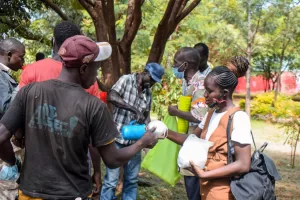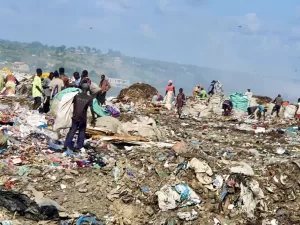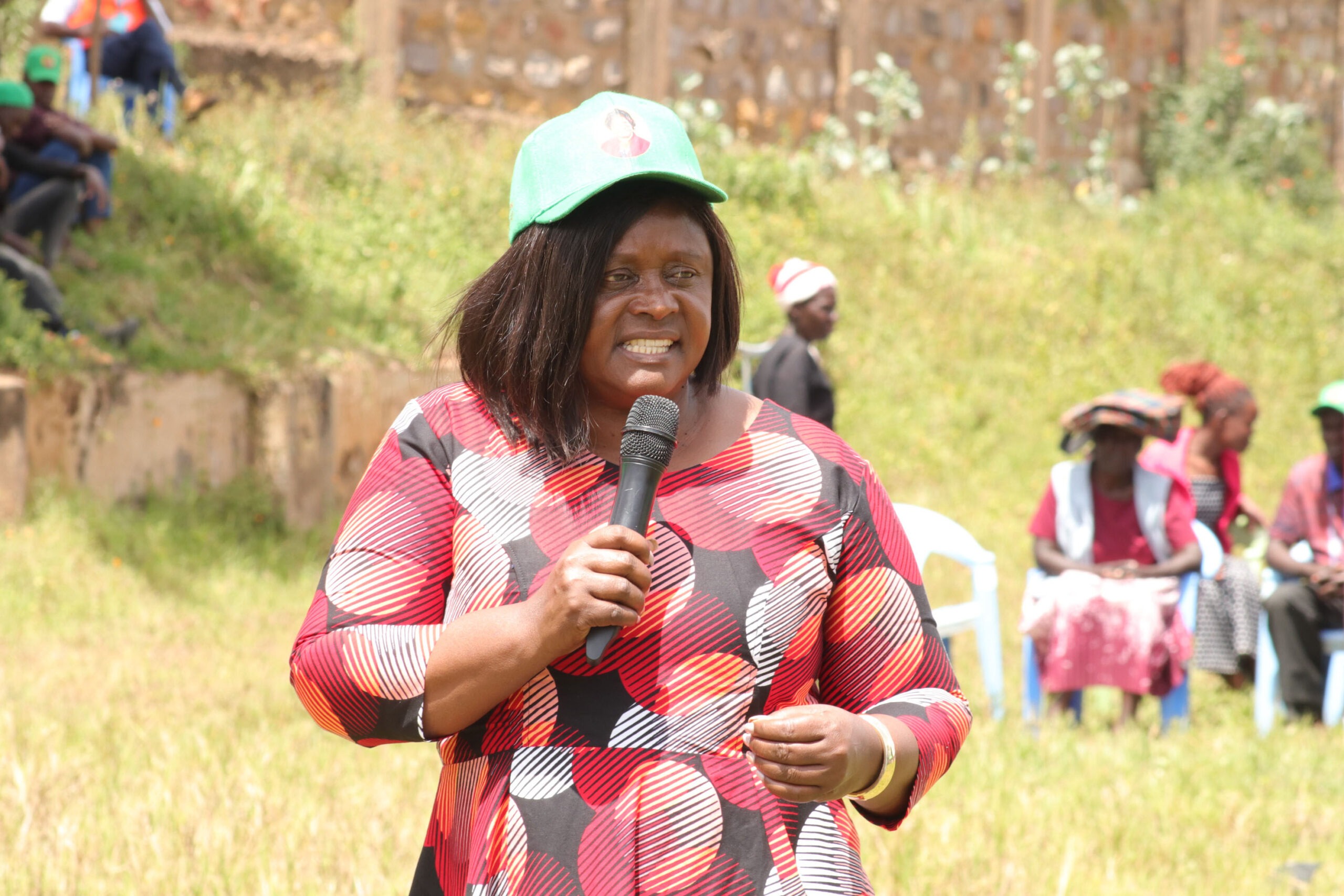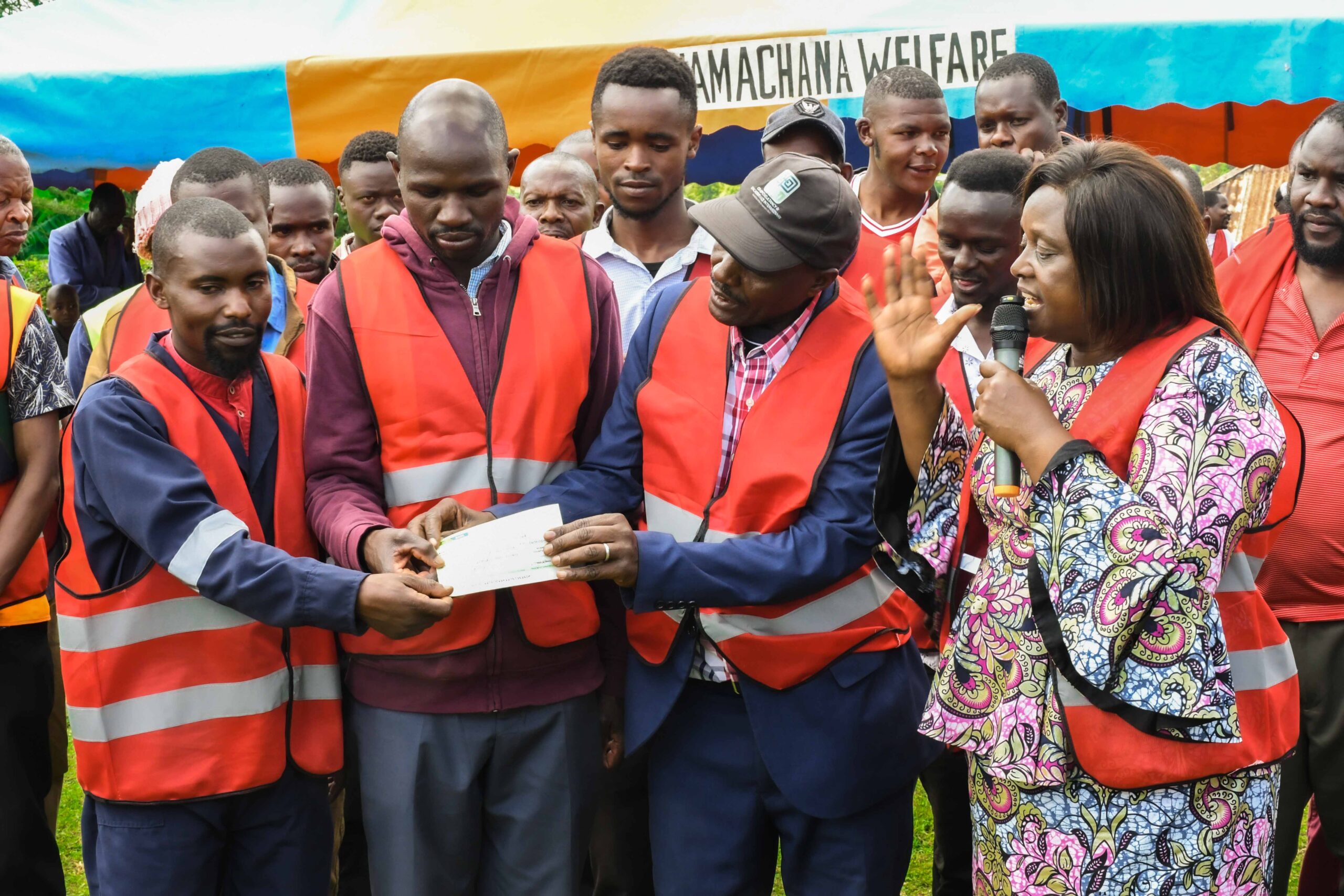
Steve Mokaya
Obed Chweya, 25, was abused and rejected by his close relatives when his parents died in 2008. Giving up was not, has not been in his books. He lives to tell the story.
He was the firstborn in his family. However, he quickly points out that he was not the firstborn of his father. His mother got married while he had been born, something that didn’t sit down well with his extended family.
“All the problems that I’ve undergone in this life are due to that fact,” he said, tears welling up in his eyes.
His father died in an accident while the mother succumbed to illness. His parents’ deaths followed each other in quick succession. It was in 2008 when the post-election violence was rife in the country.
However, even before his parents died, he said, his only uncle was openly abusive and discriminative to him. His sister, born of the same mother and father, survived the wrath.
“My father had accumulated some wealth in Eldoret, where we lived. My uncle also lived in the same town,” he said.
Upon the demise of his parents, the uncle in question took them in. The stay was not a good one. Obed didn’t give the details of the treatment that he got while in his uncle’s place in Eldoret. He only said, “It was a very bad experience.”
Interestingly, all this while, their neighbours were watching and hearing almost everything. One day, a certain woman advised him to ask for the death certificates of his parents from the uncle, so that he could use them to seek help.
The daring boy did, and summarily got banished from the house.
“You don’t need the documents at your age. In addition, we don’t even know where you came from,” his uncle told him, he said.
When the place he called home became unbearable, he left Eldoret for his late father’s home, in Marani, Kisii County.
They had been there before many times, and the villagers knew him too well. He also went there primarily to seek protection from his grandfather. Grandparents can be understanding and unconditionally loving, he had thought.
He got the shock of his life.
“I narrated everything to babu (grandfather). I told him how Uncle had mistreated me. Instead of helping me, he told me ‘I don’t know you’, and that I was a kisirani (nuisance),” he said.
The little boy, determined to find a home in his father’s household, even called for a baraza, with the help of a chief.
“The villagers advised me to report my troubles to the chief. That’s when a baraza was called,” he said.
To his grandfather, Obed had engaged a higher gear unnecessarily, in a bid to cast him with disregard before the villagers. As though to show who is boss and stamp authority, Obed said, the grandfather whom he had thought would be his safe haven stood before the crowd and said, “I have no business explaining things about my late son’s wealth and anything else to a small boy whose parents I don’t know.”
All this while, his sister, then in class three was oblivious to the experience of his only brother. Obed said that the sister was well taken care of by his uncle, with whom he had crossed ranks.
When everything he tried failed, he looked at the streets, and they welcomed him so warmly. On a certain morning of 2009, Obed left Marani for Kisii streets. He has never gone back. He knows no home. His only relative, he says, is his sister, who has since been married.
“Life in the street was not good at all and I don’t wish it for anyone. However, we were very many and we kind of formed a family, and that gave me solace and warmth that I had lacked for so long,” he said.
He survived by eating food off the dustbins. Sometimes he looked for scrap metals which he sold to the dealers in town, just for food. Other times some good-hearted people offered him money. He remembers a woman he calls ‘an angel’, who came to the street children’s rescue many times.
“She was a good old woman. She used to sell food at the Marikiti market in the town centre. She knew us all and sold us a lot of food at a very low price. Unfortunately, she later died,” he said.
While in the streets, to pass time and distract his mind from unnecessary stress, he enrolled in a football youth club. They used to train and play at the Gusii Stadium. That, he said, kept him level headed and a sense of worth. He had to be clean every time he went to the club, for him to be accepted by the other players, he said.
Besides playing football, Obed started doing a makanga job, where he would help conductors to fill matatus. He also carried people’s luggage in town for a fee. It is while doing this job that he got acquainted with a certain man called Steve.
“Steve, I came to realise, was a teacher at Kisii Primary School. I told him my story and he offered to help do my Kenya Certificate of Primary Education (KCPE) exam,” he said.
When his parents died, Obed was in class six. He never went to school again until he met with teacher Steve.
“I didn’t want to go to class to learn. I just wanted to do the KCPE exam and get a certificate,” he said.
Steve went to his (Obed’s) home school at Marani and talked with the teachers, who agreed to register him as a candidate. Surprisingly, he was given index two.
He remained a street child. Teacher Steve helped him with revision materials, and when the exam time came, the youngster traveled from Kisii to Marani for three days to do his exam. When the results were announced, he had scored 278 marks out of the possible 500.
With no one to pay for his secondary school fee, he continued working in town as a tout, until one day, when he bumped into a one Gladys. Gladys, Obed says, was a librarian at Kisii University.
“She used to come from Keroka daily and we always met in the matatu stage. She could hear other touts call me ‘chokoraa’, and with time, she got interested to know why, because I didn’t look like one and we had struck a rapport with each other,’ he said.
Unbothered to tell his life story to whoever cared, Obed told Gladys everything. She happened to know a teacher in a school, Ikonge Secondary, at Kemera, Nyamira County. Gladys talked to the teacher and they decided to see Obed through school. And it happened that more than a year after doing the KCPE exam, Obed went back to school.
” I used to board a certain matatu that plied the Kisii-Nakuru route every day. The driver would drop me at Kemera every morning for free. In the evening, I could wait for the same vehicle and board it to town. It is like we had a deal with the driver,” he said, chuckling.

After a year, while in the December holidays, he heard of a Christmas event organised by a Pentecostal Assemblies of God (PAG) church in town, specifically for street children. He attended the event, and as fate would have it, met with the then principal of Kerema High School in Kebirigo.
The principal took him in and offered to sponsor his education. He schooled at the new school for two terms. Then his sponsor, the principal, died. He was forced out.
“But it’s like God was really with me. Another member of the church, who was a principal at Itibo Girls’ Secondary School introduced me to the principal of Itibo Boys’ Secondary School,” he said.
It is in this school that he schooled until form four. He says he served as the sports captain and the Christian Union (CU) chairman. He scored a D+ in the Kenya Certificate of Secondary Education exam of 2015.
The church, now his de facto parent enrolled him at Kabete Polytechnic in Nairobi. He took a certificate course in geophysical exploration and mining techniques. He later graduated and did a diploma in the same course from the same college. He graduated in May last year.
Upon graduation, Obed went back to his roots, in the streets of Kisii town. He started an initiative of helping street children get opportunities including going to school and a source of living for the mature ones.
“I asked for the number of Janet Ong’era, the women representative of Kisii County. I presented my case and told her of my plans for the street children. She decided to help me to help them,” he said.
He is now the coordinator of the Kisii Street Children Association, which has a total membership of 642. However, last year they were 840 before they took others to school, he says. With the help of the women rep, Obed and his team have set up two wash sites with machines in town, to help the mature street children. They also buy them clothes.
“Street children are people like any other, only that they have been pushed there by unavoidable circumstances. My team and I try to take care of their welfare, in whichever way we can,” he said.
Obed is also the organising secretary of Kisii university and the college students association. He is also the youth representative in the Kisii Matatu Operators association. He has eyes on the ball still.
“I hope to get a job in my career and have a successful life for my children when I get them. I don’t want them to go through what I’ve gone through,” he said.



